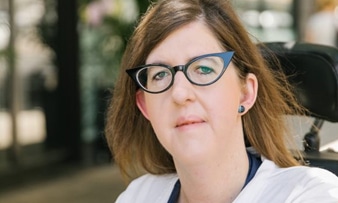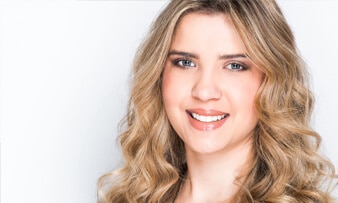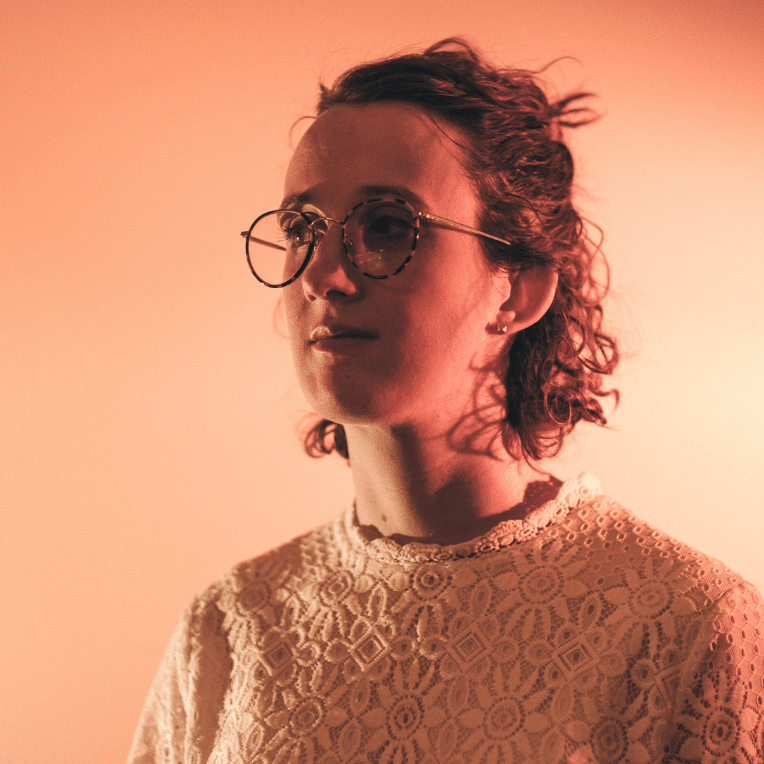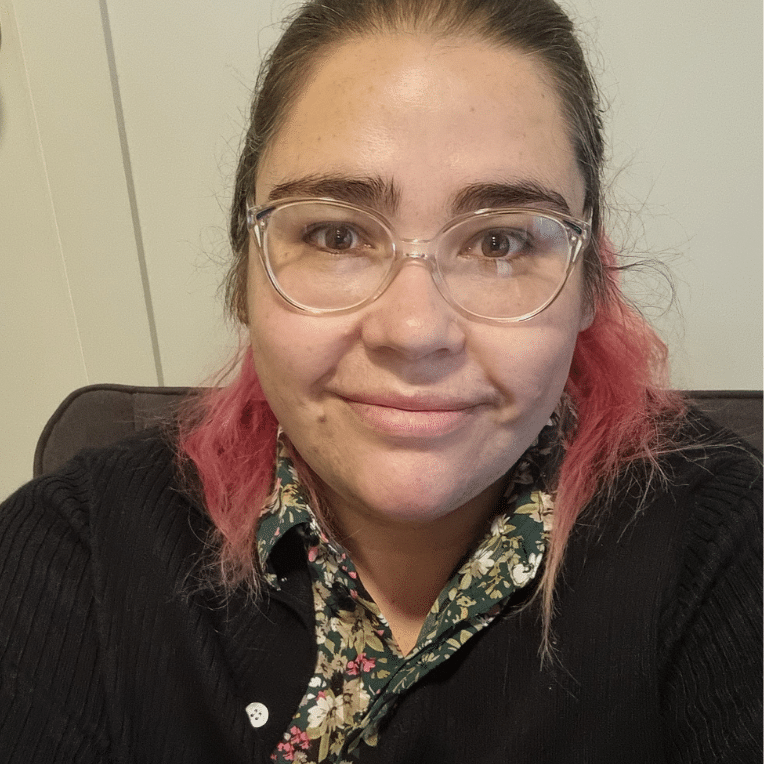Share this episode on
In this episode we talk with Natalie Wade about her love of the law, accessible education and how we can all play a part in creating more inclusive communities.
As the Founder and Principal Lawyer of Equality Lawyers, Natalie is a leader in providing premium legal advice and representation to people with disabilities and their families. In 2016, Natalie was awarded Australian Young Lawyer of the Year and South Australian Young Lawyer of the Year in recognition of her work on law reform projects that advanced the rights of people with disabilities and commitment to diversity in the legal profession.
Produced by: Black Me Out Productions
Additional reading
Additional information
View transcript
Growing Bold and changing social attitudes:
Pete:
Welcome to the Grow Bold with Disability podcast brought to you by Feros Care. A podcast dedicated to smashing stereotypes and talking about the things people with disability care about most to help us live bolder, healthier, better connected lives. I’m journalist Pete Timbs.
Tristram:
And I’m Tristram Peters. I work for disability service directory, ClickAbility and am a wheelchair user living with spinal muscular atrophy.
Pete:
Today’s episode of Grow Bold with Disability is growing bold and inclusivity. Our guest is disability rights and firebrand Natalie Wade, Founder and Principal lawyer at Equality Lawyers in Adelaide. And she is a wheelchair user. In this episode, we’ll find out about Nat’s disability and how she found a love of law and oddles. And how her law firm is ensuring equality and promoting disability rights all over Australia. Nat, welcome to Grow Bold with Disability.
Natalie:
Thank you so much for having me.
Tristram:
So, Nat, as Pete said you are a wheelchair user. Can you tell us a little bit about your disability and how it affects you?
Natalie:
So, I have been in a wheelchair all my life. I was born with a congenital, muscular myopathy, which just means that I have very weak muscles in my arms and my legs and my spine. Yeah, I think that is the gist of it. And so, I don’t walk at all. I use a wheelchair to get around, to get to work, to get around, to get home, to go everywhere. I am either in bed or in my chair.
Pete:
So how is that different to muscular dystrophy?
Nat:
That’s a really good question. Um, it’s probably not a whole lot different other than, um, no one really knows how mine will play out. I have an undiagnosed muscular myopathy, which is, I think, just a broader diagnostic group. But it’s very similar in manifestation. I have the floppy limbs. I wear a BiPap at night to sleep on.
I dread the winter, and if I get a cold, I go to hospital. And it’s all pretty much the same as far as I can tell.
Tristram:
Yeah, and then in terms of growing up, would you call yours a typical education? Was it much different to everyone else’s?
Natalie:
Yes, sir. I am attending mainstream school as they call it. And my experience of mainstream schooling was, uh, integration. I was in a classroom with my non-disabled peers. And that was the case from reception through to year 12. Definitely acknowledging that there are mainstream schools that have disability units and specialist streams. But I was just thrown into the classroom and told to participate which I did. And that was really great. But it certainly was a product of its time. So, I was the only person with a physical disability at my school. And when my parents went to enrol me in my primary school education, at the school where my sister attended, who is not disabled, they were required to have me undergoing a psychological assessment to see if I had an intellectual disability as well as a physical disability. Even though I had no indicators that I had any intellectual impairment at the time. But it was merely the fact that I used a wheelchair or had a physical disability, that the school would not accept my enrolment without that further testing.
Pete:
We’re not talking like the 1940s here. When was this? This was the 90’s wasn’t it?
Nat:
It was the 90’s. Spot on. So, I started school in 1995.
Pete:
What? I just can’t get my head around this style of treatment. How did you feel about all that?
Nat:
I was pretty oblivious. So, five-year-old Nat was pretty unaware that it was remotely strange. And my parents, you know, when I say to them now, me a 31-year-old disability rights lawyer,
“oh, my God, I can’t believe you let that happen. What were you thinking?”
, they often say there was just no other way around. It was either that I undertook the assessments, and they knew that there would be no issues with the results. So, it was simply a check box issue. Or I would be attending the local special school. And my parents had a strange but very understandable fixation with me going to the same school as my sister. So, that was really their motivator. They were less concerned about, you know, mainstream versus special schooling. They were very keen to do one pick up and one drop off.
Pete:
I understand that as a parent.
Tristram:
Yeah, I also find that I was also the only wheelchair user at my school. In a strange way, I found it oddly empowering because it was so.. I was just thrown in to do everything. Um, was it the same for yourself? You just got on with it.
Nat:
Yeah, at the time I thought “this is so great, this is my preferred way to be disabled – to be the only one”
. It’s a real novelty to your peers. And you get to inform their lived experience of disability. So, you are the one who gets to tell them, because at that time, and arguably stealing our you know, it’s not in mainstream media. It’s not in their world other than their interactions with you. And so, you have this incredible power, sort of responsibility to inform how they perceive disability. That was generally how I felt about it. Until probably my later adolescence towards the end of schooling and certainly leading up to university. I had no concept of what people who were like me were really like. And I didn’t know what they were doing. I didn’t know if they were having similar lives like me. I didn’t know if they were super cool or if they were total losers.
I have no idea what was going on and that created its own sense of very quiet isolation, I think.
Pete:
On that note, do you wish you had gone not to a special school, but to a school that was a bit more specialised and had a few more people with disability at the school?
Nat:
No. I probably wish that I had grown up in a time where mainstream schooling accepted more enrolments of people with disabilities. So, I think now, judging by what my nieces and nephews see at their schooling ages, they’re very little. The classrooms are full with disability these days, which is so magical to see. And I think that I would have preferred to have grown up in that era because that would be so fun.
Tristram:
Yeah, agreed. And so, what was the plan upon leaving school? What sort of job prospects were there?
Nat:
Yeah so, pretty much exactly what you see me doing now is what the plan was. I’m a fantastic Virgo and fantastic planner. And this was the plan. I went to Adelaide Law School at the University of Adelaide. I started in 2008. So straight out of Year 12. I didn’t have a gap year. And did law for five years. And then I became a lawyer, and I’m still here now.
Pete:
So how did you find the university? You’re getting older. You can see the differences in things like wheelchair accessibility and all those things and university adapting to people with disability. Did you become a bit of an advocate to push that? Because that was the era when it was sort of becoming a little bit more out in the open and you could raise your voice a bit more.
Natalie:
Yes, definitely. I love the synergy that I started law school the year that Australia ratified the Convention on the Rights of People with Disability.
But it’s definitely the time, that five years at law school, that I really cut my teeth as a disability advocate. At school I guess your parents and your teachers, and your peers as well do a lot of your advocacy for you. And at Uni, I was a bit more responsible for what was going on around me and I also was at the brilliant age that is young adolescence to worry about it. And reading some amazing things at Uni around systemic reform that makes the education experience more accessible and inclusive for people with disabilities. And those reforms still exist today so they are everything from lift buttons being the appropriate height for a wheelchair user, a wheelchair user that can’t lift their arms, I hesitate to add. But also the way that exam timetables are structured so that you can let the university know what you need for exams and then that remains so for the duration of the degree. So, when I went to university, I used to have to tell them every semester, what you needed both for exams but also for the course that you were enrolled in. And I said in Semester One of 2008, that’s a lot of semesters over 5 years. And I plan to be this disabled the whole time. So, can we maybe work that out? And we did. And now that hopefully makes it a lot easier for other students.
Tristram:
This is just taking me back to my own Uni days. Nat, I remember, you know, some of the biggest challenges I had was around the fatigue in those exam blocks and needing a little bit more time. And I suppose the university, they just did not know about these sorts of requirements and changes and being flexible and that sort of thing, was it a hard conversation to have with the University Administrates and all those sorts of types?
Or was it a pretty easy conversation to have?
Natalie:
I think it was a very educational conversation. I didn’t think that it was necessarily easy or hard, but it certainly was labouring to walk them through what I needed, how I needed it. A lot of my adjustments required a physical stuff. Having a desk at the right height or having doorways you can get through. I went to my first exam to the place where my friends were going, and it turned out that I was a fire hazard and that I shouldn’t have been there at all. And so, there are all these physical barriers, as you both know, in any environment. It’s a matter of tackling those. But really walking the university staff through what those barriers are and why they need to be broken down for me to participate effectively. I think over the five years, I got a lot more articulate in the way that I would put that and a lot less apologetic.
Pete:
How open with the university to making these changes?
Natalie:
Oh super open. They were really great about it. They had some fantastic ally focused people in the disability services office, which is responsible for ensuring that students with disabilities are able to access university programs. And they were really great in helping me to bring my needs to the attention of the relevant people.
Pete:
Nat, did you notice by the time you got into the fifth year, was there more people disability coming through in first years?
Natalie:
No. So I went through 5 years without any other person with a disability. So, if you do the math, by 2012 I had been in education for 18 years, right? And I still at that time was the only person with a physical disability in my space.
Pete:
Wow.
Natalie:
Yeah, so two decades.
Pete:
And Adelaide Uni is a pretty big too.
Natalie:
Yeah.
Tristram:
Did this just further entrench that feeling of isolation? I suppose it’s such a motivating factor in what you’ve gone and done since.
Natalie:
Yes, so having sort of left school and heading off to university, I had more opportunities as most young people do, to mix in different circles outside of my immediate local community. And so, I had at that point during my time at university become more and more involved in disability advocacy, and that brought me in touch with more and more people with disabilities and particularly young people. And so, whilst they weren’t in law school with me, they were certainly in my world and that was really wonderful and made me a lot more aware of many of the issues that I now work on all day, every day.
Pete:
Now, after you left Uni, you graduated, you had a few jobs within the legal industry. Then you started your own firm. What inspired you to open your own firm and tell us a little bit about it.
Natalie:
Yeah. Equality Lawyers is the firm, and we are a boutique law firm for people with disabilities and their families. Before I opened EQL as we very affectionately call it, I was the state government solicitor, which was really great for all sorts of different reasons. And I got to really amazing opportunities And I definitely learned my craft in state government. But in 2018, I had a government scholarship to do a leadership course. And so, I sat in a cohort of 44 other leaders from South Australia that travel around the state throughout 12 months, learning all things leadership. How to be a leader, how to do leader things.
And throughout the 12 months, I was routinely annoyed and surprised, and then also not surprised, at the lack of inclusion and representation of people with disabilities throughout our communities. And so, at the end of that course, I said very jokingly, I was joking, that maybe it was time for me to leave my state government job and take my lawyer skills back to the community and sort out why we people with disabilities weren’t featuring more heavily in spaces within our community. So, then I went back to my cushy government job, and by January 2019, I thought you know that I really should go. I said to my husband, I’m going to do this. I’m going to quit my six-figure paying job and hopefully it works.
Pete:
Good on you.
Natalie:
Yeah. And so that was a while ago now. But it wasn’t really. It was in July 2019, Equality Lawyers started. And the purpose of it really is to have private disabled lawyers for disabled people.
Tristram:
Amazing. Perfect. I mean, it’s obviously been a success. What sort of cases do you work on day to day?
Natalie:
We focus on the everyday legal issues that face people with disability. They are commonly discrimination matters. So usually in the space of education or work. But we also see a bit of goods and services like airlines and cafes and things like that. But predominantly as you would expect, work and education are two really big areas with discrimination. We also do a little bit of NDIS reviews and appeals. But not as much as you would think. The NDIS reviews and appeals space is really well funded through the legal aid commissions throughout Australia. So, we send a lot of that work to them which is really great. But we also do a lot of guardianship and administration work.
I don’t know if you guys have heard of that, but that’s where a person is not able to make their own legal decisions and that disproportionately impacts people with intellectual disabilities and cognitive impairments. We do quite a bit of that work. Centrelink, Social Security law we do a bit of that. But then in the last year or so in South Australia, almost a year ago now, we had the death of Anne Marie Smith, which was really devastating for our local disability community, but also across Australia. And that saw a lot of families and people with disabilities sort of turn around and go “well how do we be safe”
and what does safe look like in our future? And so, we’ve been doing a lot of work around planning safe futures for people with disabilities and from a legal perspective that looks like Wills and Estates. So, making sure that people have the right Wills and the right Estate plans in place that not only keep them safe but promote a good and productive life for the person with disability.
Pete:
What have been some of the more disturbing trends that you’re seeing coming over your desk, the sort of things that are really “this is not right and it’s happening way too much.”
Natalie:
Yes. So I saw some worrying trends, and trends is a great thing to focus on because people often ask me “oh, can you tell us about a case..”
and I really can’t tell them about a case but I can definitely tell you about trends, and I think it’s really valuable for people to know. So, we’ve been seeing a lot of people with intellectual disabilities and cognitive impairments have their decision-making abilities taken away from them.
But it’s been a bit of a worry because we haven’t been seeing as much support put in place to assist that person to exercise their decision-making ability in a different way to what a neuro typical, white, middle class male would do. And so, that’s been a real worry because it’s very serious to remove the right of a person to make their own decisions. That may be a decision about where they live, how they manage their money, what they do for work. It’s very, very serious. That’s a bit of a worry. We also have seen, as I mentioned, an increase in people wanting to plan safe futures. But also, in that a lot of conversations about what does the everyday life for a person with a disability look like and what are their legal rights to ensuring that life is a reality. So, a lot of those conversations honestly revolve around work. So, what are people’s rights to work? What is their legal position with respect to making sure that they get the best outcomes that they can rather than, you know, just go into a day options program, staying there forever? That’s all they do. And I think the families and people with disabilities are really interested to know their rights in that space.
Pete:
And so they should.
Tristram:
In terms of the things that need to change then in society to drive inclusivity. You’ve spoken a bit about, you know, legal rights and ensuring that people know what they’re entitled to. Is there something more broad that we need to do to ensure that we are driving towards that inclusivity?
Natalie:
Yeah, so I think that there’s things that governments and law makers can do. Then there’s things that policy makers and civil society, you know, representative organizations can do. And then there’s what everyone can do. And it’s probably worthwhile for your listeners focusing on the part that everyone can do. And so, I think often people will hear about inclusion or the rights of people with disabilities and think, oh my gosh, that is an issue way bigger than me. That is for government. That is for the Peak organizations. That’s for someone else but definitely not me. But there really is a lot that everyday Australians can do to promote inclusion and effect real change for people with disabilities. So, a couple of really easy examples are things like if you’re a business and you have a website making sure your website is your accessible for people with disabilities. If you have a building, so you’re a cafe or a restaurant, making sure you have a ramp for wheelchair users, making sure that you’re aware that people with visual impairments use guide dogs and they’re allowed in your premises. Making sure that you support and welcome people with disabilities into your local sporting clubs, your local community activities. If you have children at school and you’re in some sort of parent network making sure that parents with disabilities are a part of your conversations or parents of children with disabilities are being heard. So, we all have something that we can really do in our everyday circle of influence that could lift up and promote the rights of people with disabilities.
Pete:
Yeah, it’s the little things, really, isn’t it?
Natalie:
Yeah, most definitely.
Tristram:
So, Nat, as you know, this podcast is called Grow Bold with disability. What does living a bold life mean to you?
Natalie:
For me, living bold, or growing bold is about being authentic to you. About doing what you believe is good work or having a good life and doing that absolutely brilliantly.
Pete:
Fantastic short and to the point, I like it. You must be a lawyer. Well Nat, thank you so much for joining us here today on the global disability podcast brought to you by Feros Care, and our listeners can find out more about Natalie and her amazing firm, Equality Lawyers in the links provided in today’s show notes. Thanks again for joining us.
Natalie:
Thank you so much for having me.
Pete:
This podcast is brought to you by Feros Care, an NDIS partner delivering local area coordination services in Queensland, South Australia and the Australian Capital Territory. Feros Care is a people care organization committed to helping people live bolder lives. We call it Growing Bold. For over 30 years, Feros has been making it real for both older Australians and those living with disability. To find out more head to www.feroscare.com.au
View podcast disclaimer
The content and views discussed in this podcast series are those of the individuals involved. They are not necessarily condoned by, or, are the views of Feros Care or its employees.
Our Guest






